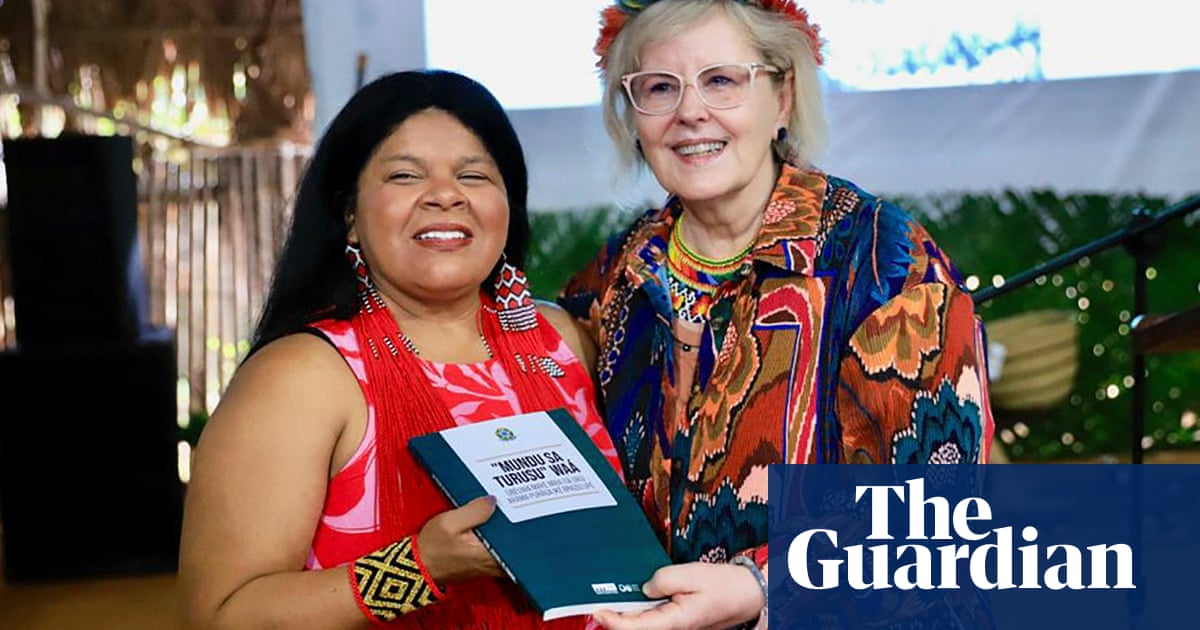
The Brazilian constitution has gained its first ever official translation into an Indigenous language, in what has been hailed as a historic moment for the country and its native populations.
The translation into Nheengatu was unveiled on Wednesday in São Gabriel da Cachoeira, a town deep in the Amazon, in a ceremony attended by Brazilian authorities and Indigenous leaders.
“Today is a milestone in our country’s constitutional history,” said Rosa Weber, the chief justice of the supreme court, which acts as the guardian of the constitution.
Brazil’s Indigenous movement played an active role in enshrining the recognition and protection of their culture and way of life in the 1988 constitution, which was drafted by an elected constituent assembly as the country emerged from a two-decades-long military dictatorship.
But until now, Indigenous Brazilians have never been able to read up on their constitutional rights in a language of their own. Also known as the Amazonian general language, Nheengatu is the only living modern version of Tupi and a lingua franca used to communicate between different groups in the Amazon.
Brazil’s national justice council coordinated the work of translation, which was carried out by a group of 15 bilingual Indigenous people from the Alto Río Negro and Médio Tapajós regions.
“We are in a country of immense diversity, and I don’t hear our languages [spoken] in our spaces. We need to be involved. Before being Indigenous, we are people who have a right to respect,” said Inory Kamari, one of the translators.
Brazil’s more than 305 ethnic groups speak 274 Indigenous languages, but only Portuguese is considered an official language.
Judicial authorities present in São Gabriel da Cachoeira welcomed the publication of the translated constitution as an important step towards preserving Brazil’s cultural and linguistic diversity, as well as raising awareness around Indigenous rights and guaranteeing a fairer state.
“It’s a sign of esteem and respect for Indigenous language and culture,” said Weber.
“It’s progress from the judiciary, a recognition of our characteristics … It’s a way of guaranteeing access to information and justice,” said Dinamam Tuxá, an executive coordinator of the Indigenous umbrella movement Articulation of Indigenous Peoples of Brazil. “We hope that one day all [Indigenous] languages will get a translation.”
Advocates noted, however, that the Indigenous translation of the magna carta will mean nothing without the application of the principles laid out in it.
Indigenous rights remain under constant assault in Brazil despite constitutional protections, a situation that worsened under former president Jair Bolsonaro and which the Luiz Inácio Lula da Silva administration is struggling to reverse amid opposition from a conservative congress.
“Let the constitution not just be written, but put into practice,” said Joênia Wapichana, the first native Brazilian to head the country’s Indigenous affairs agency Funai.
No comments:
Post a Comment